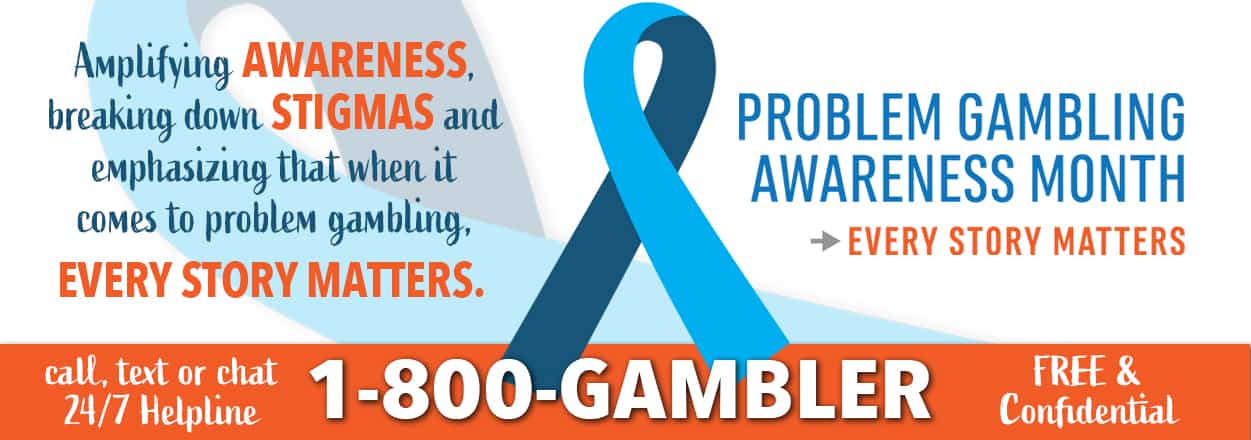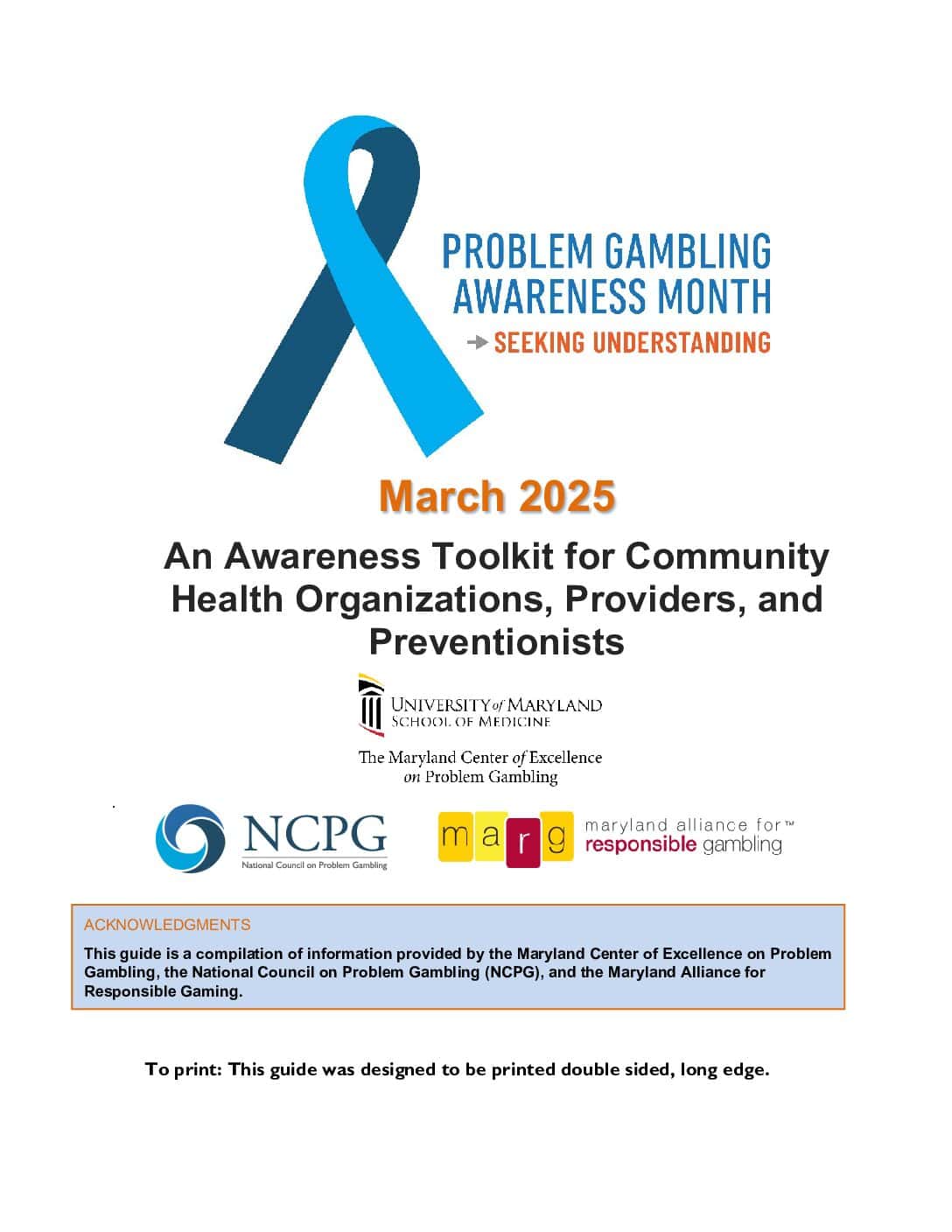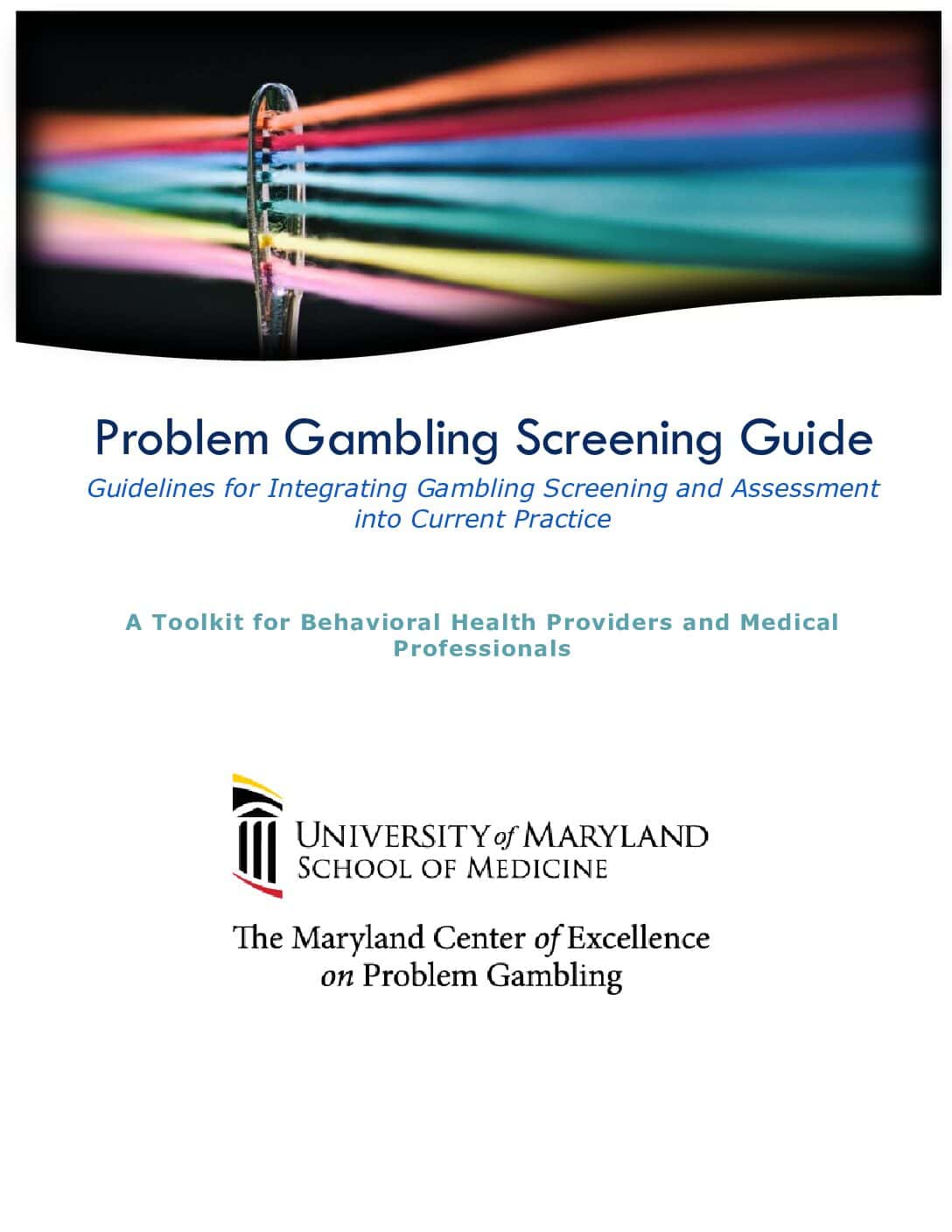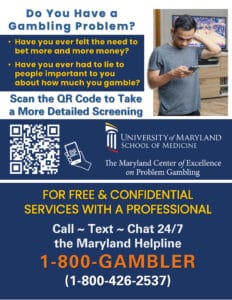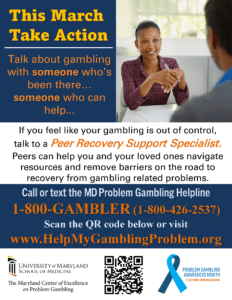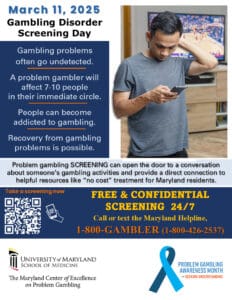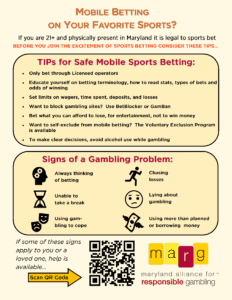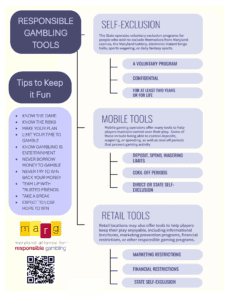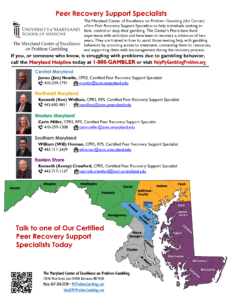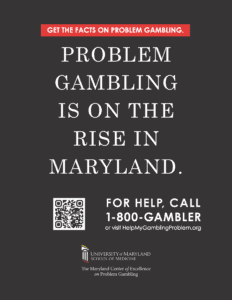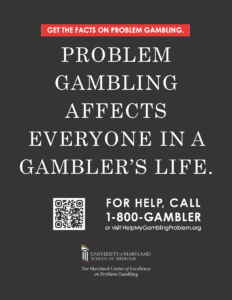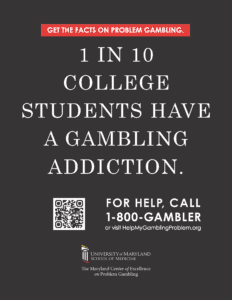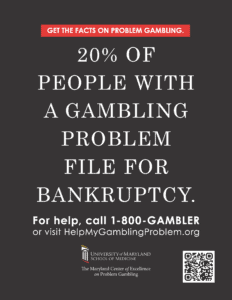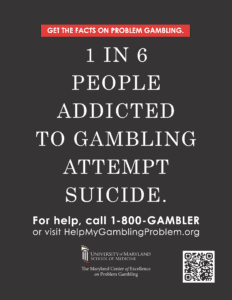Problem Gambling Awareness Month March 2024
Each March, the Center actively promotes Problem Gambling Awareness Month, a grassroots public awareness and outreach campaign established by the National Council on Problem Gambling to educate the general public and healthcare professionals about the warning signs of problem gambling and raise awareness about the help and resources available.
This March 2024, join the Center to promote AWARENESS within your organization and your community about the risks of gambling and the resources available for help and hope. And take ACTION on March 12, 2024 during National Problem Gambling Screening Day.
Problem Gambling Awareness Month 2025
An Awareness Toolkit for Community Health Organizations, Providers and Preventionists
A Screening Guide for Behavioral Health Providers
The PGAM screening guide was developed to encourage healthcare providers to screen clients for problem gambling. This guide provides the tools and resources to integrate the screening of Problem Gambling/Gambling Disorder into your agency’s current processes and protocols.
Take ACTION
- Utilize your organizations’ social media and post messages regularly during March.
- Promote and utilize screening tools on Problem Gambling Screening Day, March 12, 2024.
- Organize or participate in community events to promote screening and awareness of problem gambling.
- Invite the Center’s Peer Recovery Support Specialists to share their lived experience at your recovery groups.
- Add the Maryland Helpline 1-800-GAMBLER number and help seeker website (helpmygamblingproblem.org) to all your messaging.
- Visit the Center’s Resources page for additional organizations to collaborate with on PAGAM activities.
- Order a variety of professionally printed outreach media and awareness materials at no cost from the Center by filling out and emailing
For more information on the Center’s March 2024 PGAM activities and resources available to you, please contact us at 667-214-2120 or email:
- Heather Eshleman, Prevention Manager (eshleman@som.umaryland.edu)
- Mike Kafes, Communications Manager (mkafes@som.umaryland.edu).
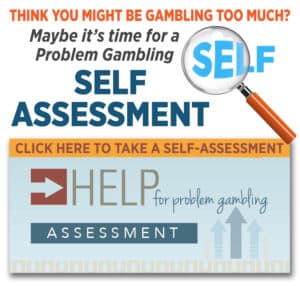 Be AWARE of the risks of gambling.
Be AWARE of the risks of gambling.
For most, gambling can be fun. But for some, gambling can get out of control. Signs of a gambling problem:
- Preoccupied with gambling (i.e., reliving past gambling experiences, planning the next venture, or thinking of ways to get money with which to gamble)
- Secretive about his/her gambling habits, and defensive when confronted
- Increasing bet amounts when gambling in order to achieve the desired excitement
- Trying unsuccessfully to control, cut back, or stop gambling
- Restless or irritable when not gambling
- Gambling to escape problems
- Trying to win back losses by more gambling
- Lying to family and others about the extent of gambling
- Jeopardizing or losing relationships, jobs, education or career opportunities because of gambling
- Relying on others to bail him or her out to relieve a desperate financial situation caused by gambling
Take ACTION for help and hope.
Call or text 1-800-GAMBLER (1-800-426-2537) or chat with us at helpmygamblingproblem.org.
- Seek no cost counseling for those who want help and support for problems related to gambling. Maryland residents can receive professional counseling without any additional financial burden.
- Have a conversation with a Peer Recovery Support Specialist for help and support for problems related to gambling. Peers can help individuals seeking to limit, control or stop their gambling, connect them to no cost counseling and other useful community resources. Peers are able to provide ongoing support in dealing with any gambling related problems.
- Take a problem gambling self-assessment Click Here to take a short survey and help determine if you may be struggling with consequences due to excessive gambling.
- Family, friends, and loved ones of problem gamblers are entitled to the same counseling, and professional family peer support regardless of insurance coverage, financial status, or ability to pay. The Maryland Coalition of Families, also provides peer support for the family, friends and loved ones of the problem gambler.
Confidential Helpline Services are provided free, 24/7, by trained and knowledgeable listeners.
Sports Betting
This year, the Center has added a new section on its websites. This new “sports betting” resource section contains pages where anyone can get:
- Answers to frequently asked questions
- Information on the risks of mobile sports betting
- Tips on playing responsibly
- Resources on screening, getting help, and/or finding a counselor
Whether you are interested in help for yourself, a loved one or you are a professional looking for information and resources for your clients, please check out




